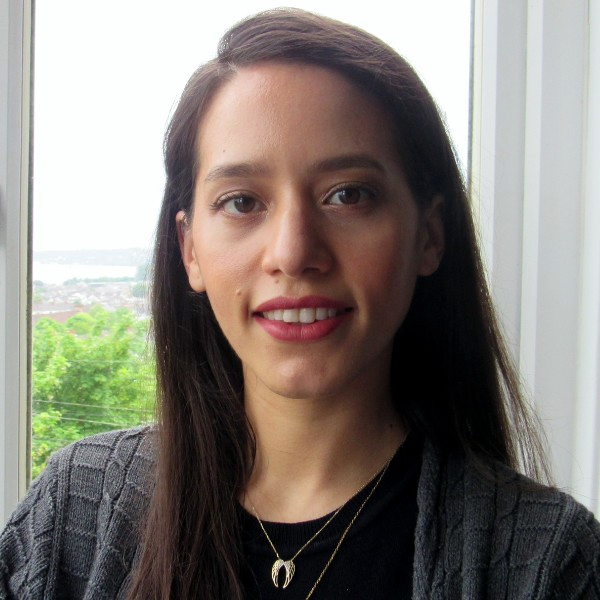Selene first came to Bristol as an international (CONACYT) scholar to study MSc in Nutrition, Physical Activity and Public Health, and, via a PhD in Exercise, Nutrition and Health Sciences, has recently just secured her dream role as a Public Health Researcher in the UK. With so much interesting experience, we asked her to share her knowledge and insight on studying at postgraduate level.
Congratulations on your new appointment Selene, can you tell us a little bit about your pathway to Bristol?
Yes, of course. I undertook my first degree, BSc (Hons) in Nutrition Science, in Mexico.
Afterwards, I wanted to work in an environment where my activities could affect the health of the general population. I chose to work in a charity implementing an obesity-prevention programme in public schools in Mexico.

Selene Valerino Perea
Over the course of this project, I learned that, whilst obesity research has progressed significantly in the last decade (e.g., we know what type of foods should be consumed in moderation), there are still many obstacles to building public health programmes which help prevent obesity in children. – There are the ethics of working with young people, issues with translating information for a specific audience, and the challenges of tackling a multi-factorial issue like obesity.
This experience became my motivation for joining the MSc in Nutrition, Physical Activity and Public Health and to start to understand the correct way of implementing and evaluating obesity-prevention programmes.
What attracted you to Bristol for your postgraduate degree?
I did a lot of research before selecting Bristol as the place for my postgraduate degree. One of the main reasons for selecting this University was the fact that it offered a comprehensive MSc. That is, it did not just offer nutrition, physical activity, or public health studies as single degrees, but all these topics combined.
Other reasons were the link between the University and the funding body financing my studies, the ranking of the University, and good reviews of the city from previous Mexican students.
What was your experience of life as an international student in Bristol?
Bristol is a fantastic city. One of the reasons that it felt like a “home away from home” was its international scene. It’s easy to feel like an outsider when you feel like you’re the only one different in one place; but this was not the case for me here. I had friends and colleagues from many countries worldwide, but I was also able to build my own Latin American community and even a Mexican community whilst at Bristol.
Can you tell us more about your research interests and what inspired you to enrol in a PhD?
My main research interest has always been anything related to nutrition. In my PhD, I explored the traditional Mexican diet definition and its association with obesity, diabetes and cardiovascular diseases and their risk factors.
During my Master’s studies, I had also developed an interest in evidence synthesis, qualitative and quantitative data analysis (including advanced statistical methods); which was another reason for continuing with my studies, to develop these areas further.
Given the limited information available on my PhD topic, I had to start with the basics, which was defining the traditional Mexican diet. I then used data already collected in Mexico to explore if those consuming a traditional-like diet had better health outcomes. In this journey, I assessed the quality of data, used different research methods, and communicated my results, which were all things that I learned in the MSc.
I enjoyed studying for my PhD as it pushed me to learn about other topics that I enjoyed, like food sustainability, food systems, and even anthropology.
In my current role, I evaluate the effect of local and national public health programmes in Wales, so I have developed more interest in other public health topics like mental well-being and in different statistical methods to test these initiatives.
Where there any particular (softer) skills that you gained through your studies which have been surprisingly useful in your working life?
I enjoy learning new skills and applying them in the future. In the MSc, I found it particularly useful to learn tips shared about writing, adhering to guidelines, producing high-quality work, and time-management. To date (almost seven years later) I continue to use these tips, and I am grateful for the recommendations made. On many occasions, this information has made my work stand out from the rest.
Where would you like to take your career in the future?
I am very pleased with my career now. It has been a challenging journey; I have had to chase opportunities and rapidly adapt to different scenarios, research topics, and working environments. I plan to stay in my current position evaluating public health policies, but I aim to work with different teams, topics, and methods to continue to learn and build a presence as a Public Health Researcher.
Do you have any advice for international students or those looking to apply for a postgraduate degree?
If you are considering applying for a postgraduate degree, I would encourage you to reach out for support. When I started the process, I contacted an agency linked to the University of Bristol that provided advice for Mexican students for free. I also asked questions to lecturers, past students, the funding agency, among others. Everyone I contacted was happy to support me, and it allowed me to understand the process/the UK education system better and to improve my postgraduate/funding application.
Follow Selene on LinkedIn for more on her research.

